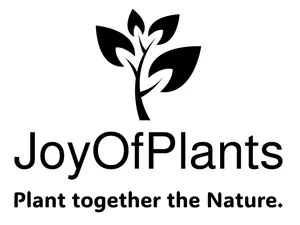
Bougainvillea Live Plant – Colorful Paper Flower Vine for Home & Garden | D..More
₹449
₹899
50% OffNow or Never Deals
00H:04M:30S
View Available Offers
Final Price inclusive of all taxes
size
FREE SIZE
Product Information
Brand
JOYOFPLANTS
Product Type
Live Flower Plant
Life Cycle
Annual
Hybrid
Yes
Country_of_Origin
India
Product Description
Here’s a comprehensive description of the Bougainvillea flower plant 🌸:
🌿 General Description
Bougainvillea is a tropical and subtropical ornamental climbing plant belonging to the family Nyctaginaceae. It is native to South America, particularly Brazil, Peru, and Argentina, but is now widely cultivated around the world for its vibrant and showy floral display.
🌺 Botanical Classification
Kingdom: Plantae
Family: Nyctaginaceae
Genus: Bougainvillea
Common Name: Paper Flower
Scientific Names (examples):
Bougainvillea glabra
Bougainvillea spectabilis
Bougainvillea peruviana
🌸 Physical Characteristics
Growth Habit:
A fast-growing woody climber, shrub, or vine, often trained on trellises, fences, and walls. Some varieties can also be pruned into hedges or small trees.
Stems:
Woody and thorny, with curved thorns aiding in climbing.
Leaves:
Simple, alternate, ovate to heart-shaped, green, and slightly hairy or smooth depending on the species.
Flowers:
The actual flowers are small, white or yellowish, tubular, and inconspicuous.
What appears to be the “flower” are bracts—modified leaves—brilliantly colored in shades of magenta, purple, red, pink, orange, white, or yellow. These papery bracts surround the tiny true flowers in clusters of three.
🌞 Growing Conditions
Light: Prefers full sun (at least 5–6 hours daily) for best blooming.
Soil: Well-drained, slightly acidic soil.
Water: Drought-tolerant once established; water moderately. Overwatering can reduce flowering.
Temperature: Thrives in warm climates; sensitive to frost.
🌱 Propagation
Usually propagated by stem cuttings or layering.
Grows easily from semi-hardwood cuttings during the warm season.
🌼 Uses and Benefits
Ornamental: Popular in gardens, pergolas, balconies, and as a decorative hedge or wall climber.
Erosion control: Its dense growth helps stabilize soil on slopes.
Cultural symbol: Represents passion, beauty, and peace in various cultures.
⚠️ Care Tips
Prune after flowering to maintain shape and encourage new growth.
Avoid excessive nitrogen fertilizer—it promotes leaves over blooms.
Handle carefully; thorns can cause injury.
🌿 General Description
Bougainvillea is a tropical and subtropical ornamental climbing plant belonging to the family Nyctaginaceae. It is native to South America, particularly Brazil, Peru, and Argentina, but is now widely cultivated around the world for its vibrant and showy floral display.
🌺 Botanical Classification
Kingdom: Plantae
Family: Nyctaginaceae
Genus: Bougainvillea
Common Name: Paper Flower
Scientific Names (examples):
Bougainvillea glabra
Bougainvillea spectabilis
Bougainvillea peruviana
🌸 Physical Characteristics
Growth Habit:
A fast-growing woody climber, shrub, or vine, often trained on trellises, fences, and walls. Some varieties can also be pruned into hedges or small trees.
Stems:
Woody and thorny, with curved thorns aiding in climbing.
Leaves:
Simple, alternate, ovate to heart-shaped, green, and slightly hairy or smooth depending on the species.
Flowers:
The actual flowers are small, white or yellowish, tubular, and inconspicuous.
What appears to be the “flower” are bracts—modified leaves—brilliantly colored in shades of magenta, purple, red, pink, orange, white, or yellow. These papery bracts surround the tiny true flowers in clusters of three.
🌞 Growing Conditions
Light: Prefers full sun (at least 5–6 hours daily) for best blooming.
Soil: Well-drained, slightly acidic soil.
Water: Drought-tolerant once established; water moderately. Overwatering can reduce flowering.
Temperature: Thrives in warm climates; sensitive to frost.
🌱 Propagation
Usually propagated by stem cuttings or layering.
Grows easily from semi-hardwood cuttings during the warm season.
🌼 Uses and Benefits
Ornamental: Popular in gardens, pergolas, balconies, and as a decorative hedge or wall climber.
Erosion control: Its dense growth helps stabilize soil on slopes.
Cultural symbol: Represents passion, beauty, and peace in various cultures.
⚠️ Care Tips
Prune after flowering to maintain shape and encourage new growth.
Avoid excessive nitrogen fertilizer—it promotes leaves over blooms.
Handle carefully; thorns can cause injury.

Now or Never Deals
Extra 50% Off
Sale ends in
00H : 04M : 30S
